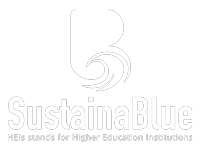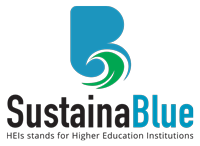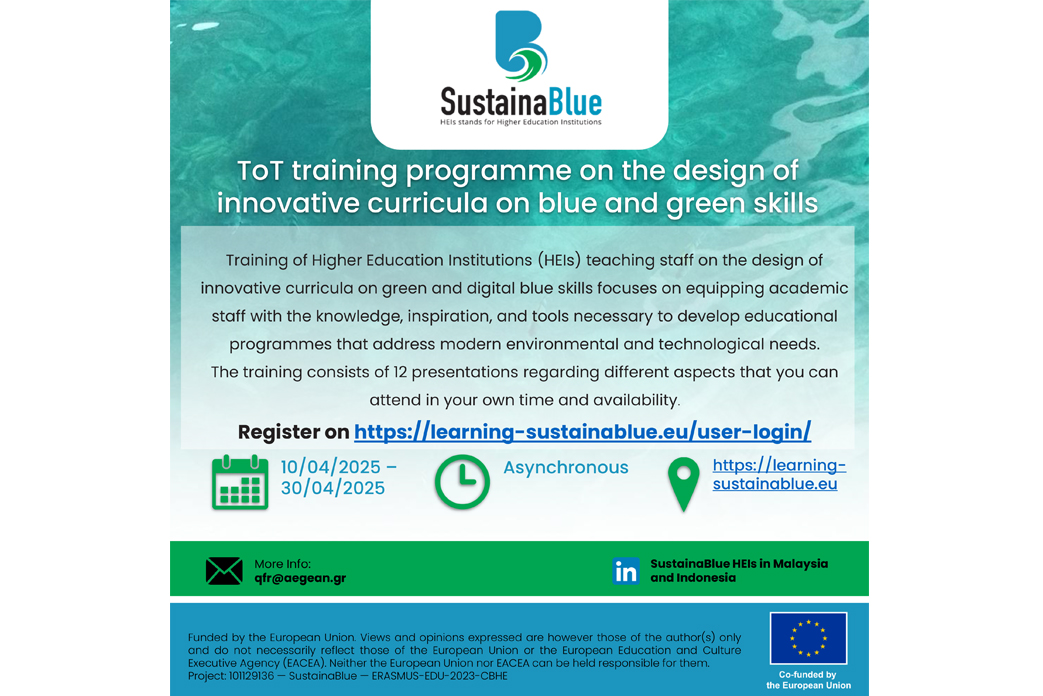Content design of 4 innovative courses
After the completion of the ToT, the trained staff of the 4 HEIs, under the coordination and guidance of UAegean & UCY, and technical support by CSI, proceeded with the creation of four innovative online courses for the development of blue and green (incl. digital and entrepreneurial) skills, identified as most in need in the labour market and most relevant to local/regional socio-economic and environmental challenges and conditions, using Outcomes-based Teaching and Learning (OBTL) curriculum design framework (constructive alignment).
Each course is expected to have a duration of 80–90 hours (including both theoretical and practical components) and to be worth 2 credits, depending on the credit system of the respective countries. Certificates and/or credit transfer mechanisms will be arranged accordingly by the HEIs, based on their institutional systems.
Curriculum development and co-design
Four Working Groups (WGs) – one for each course – with participants from each Asian HEI and European partners, were established to coordinate their work, exchange ideas and make decisions regarding the course content. The general context of the meetings focused on developing and finalising innovative online courses and teaching modules in sustainable blue economy fields, such as marine biotechnology, sustainable fisheries and aquaculture, and marine debris circular economy, while also incorporating climate change aspects.
Curriculum co-design workshops
Co-design workshops in each of the four HEIs were implemented between the teaching staff responsible for the creation of each course and representatives of students and alumni of the relevant departments. These workshops focused on getting the views and the insights of the students’ needs, expectations and aspirations regarding the courses under development.
4 online courses on blue and green skills
Four online courses on blue and green (incl. digital and entrepreneurial) skills, have been developed in English, Malay and Indonesian and will be uploaded on each of the four Asian university’s e-learning platforms. The four Asian HEIs will include them, as part of wider courses/programmes, during the next revamping of their overall core courses/syllabus (taking place approximately every 3-4 years). Academic staff in each HEI will be responsible to teach and run the courses and all activities related to them.
The four online, innovative courses are:
1. Marine Biotechnology and Bioprospecting
Developed by Universitas Indonesia, Faculty of Mathematics and Natural Sciences Department of Biology
2. Marine Debris in Circular Blue Economy
Developed by Universiti Malaysia Terengganu, Faculty of Science and Marine Environment
3. Sustainable Blue Economy and Ecosystem Management
Developed by University Sains Malaysia, School of Biological Sciences
4. Sustainable Fisheries
Developed by Institut Teknologi Sepuluh Nopember, Faculty of Science and Data Analytics, Biology Department



